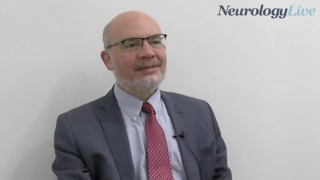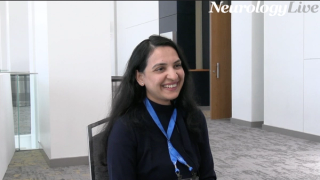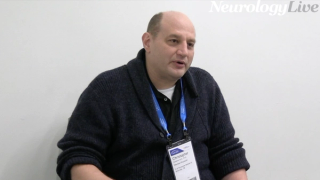
Neuromuscular
Latest News

Latest Videos

CME Content
More News

The neurooncologist from the University of California Los Angeles provided clinical insight on the impact of a new treatment option for adults and children with neurofibromatosis type 1 that are not amenable to complete surgical resection. [WATCH TIME: 2 minutes]

The pediatric neurologist provided a clinical overview of the advances and roadblocks of gene therapy in neuromuscular disorders, which will be highlighted at the 2025 MDA Clinical & Scientific Conference.

Initial data reported from the FREEDOM-DM1 trial suggest PGN-EDODM1 has dose-dependent effects in patients with DM1, with further results from study cohorts expected in 2025 and 2026.

Entrada Therapeutics has recently received FDA clearance to move forward with a clinical trial for its investigational Duchenne muscular dystrophy therapy.

The associate professor of neurology at Columbia University provided commentary on the rapid advancements in translating genetic research into ALS treatments and the challenges that remain. [WATCH TIME: 5 minutes]

Neurology News Network. for the week ending February 23, 2025. [WATCH TIME: 3 minutes]

Take 5 minutes to catch up on NeurologyLive®'s highlights from the week ending February 21, 2025.

The pediatric neurologist at Children’s Hospital of Philadelphia provided background on a notable track session at the upcoming MDA Clinical & Scientific Conference covering updates in gene therapy for neuromuscular conditions. [WATCH TIME: 4 minutes]

A pair of lead neurologists at Baptist Health South Florida provided commentary on some of the promising developments expected to emerge in neurology over the coming months.

The FDA has assigned a PDUFA action date of August 19, 2025, and if approved, vatiquinone would be the first therapy for pediatric patients with Friedreich ataxia.

The associate professor of neurology at Columbia University gave clinical insight on what neurologists and other neuromuscular specialists can expect from the ALS/frontotemporal dementia track at this year’s MDA Clinical & Scientific Conference. [WATCH TIME: 3 minutes]

After 90 days of treatment, investigators observed positive findings on microdystrophin expression, as well as reductions in markers of muscle injury and stress, and muscle breakdown and dystrophic regeneration.

Matthew B. Harms, MD, an associate professor of neurology at Columbia University Irving Medical Center, an MDA Care Center, gave clinical insights on the advances in ALS genetic research and what clinicians can expect from the ALS/FTD track at the 2025 MDA Clinical & Scientific Conference.

The Lillehei professor in stem cell and regenerative cardiovascular medicine at the University of Minnesota talked about the potential of investigating inducted pluripotent stem cells in neuromuscular diseases at MDA’s 2025 conference. [WATCH TIME: 8 minutes]

The associate vice president of community outreach at CureDuchenne talked about events like the 2025 FUTURES National Conference that aim to bring individuals from the Duchenne community together. [WATCH TIME: 6 minutes]

Neurology News Network. for the week ending February 16, 2025. [WATCH TIME: 3 minutes]

Test your neurology knowledge with NeurologyLive®'s weekly quiz series, featuring questions on a variety of clinical and historical neurology topics. This week's topic is on chronic demyelinating inflammatory polyneuropathy (CIDP).

Take 5 minutes to catch up on NeurologyLive®'s highlights from the week ending February 14, 2024.

The clinical researcher at St. Jude Children's Research Hospital discussed the evolving treatment landscape for Charcot-Marie-Tooth disease, which will be featured in a session at the 2025 MDA Conference. [WATCH TIME: 7 minutes]

Expected to conclude in late 2026, the trial will feature 30 patients with Jordan’s syndrome, aged 9-45 years, who will be tested for a 24-week treatment period.

This new option, along with updated prescribing information, is expected to allow for easier administration and storage, enhancing the overall treatment experience.

A minor difference in relapse rates at month 8 between rituximab and placebo narrowed by month 12, indicating no long-term treatment advantage.

The kinase inhibitor was approved for patients with neurofibromatosis type 1 (NF1) who have symptomatic plexiform neurofibromas (PN) not amenable to complete resection.

In a recent case report, a 46-year-old man living with chronic inflammatory demyelinating polyneuropathy experienced multiple relapses despite various conventional treatments; however, found promise in ofatumumab, an approved drug for multiple sclerosis.

Troriluzole, a new chemical entity and third-generation novel prodrug that modulates glutamate, would become the first approved agent for SCA, pending the FDA’s clearance.



















